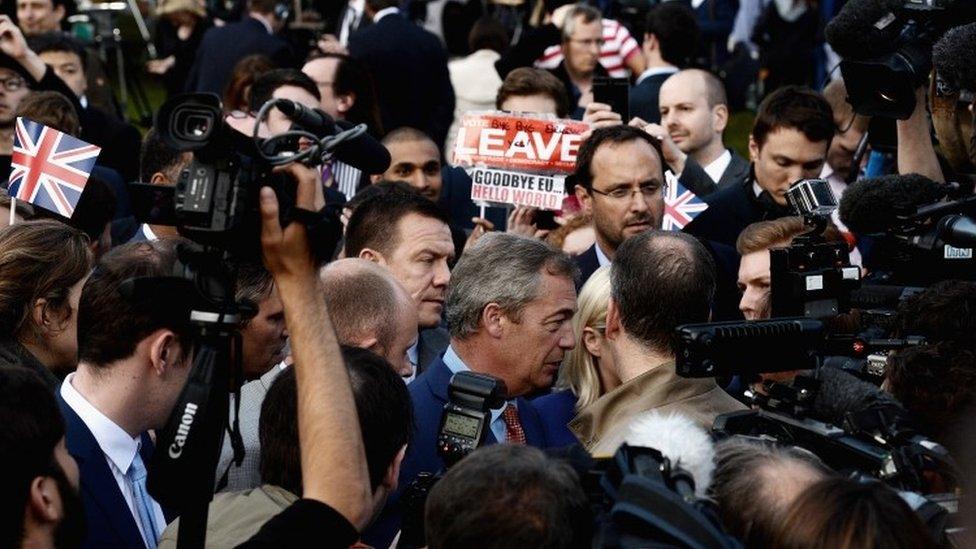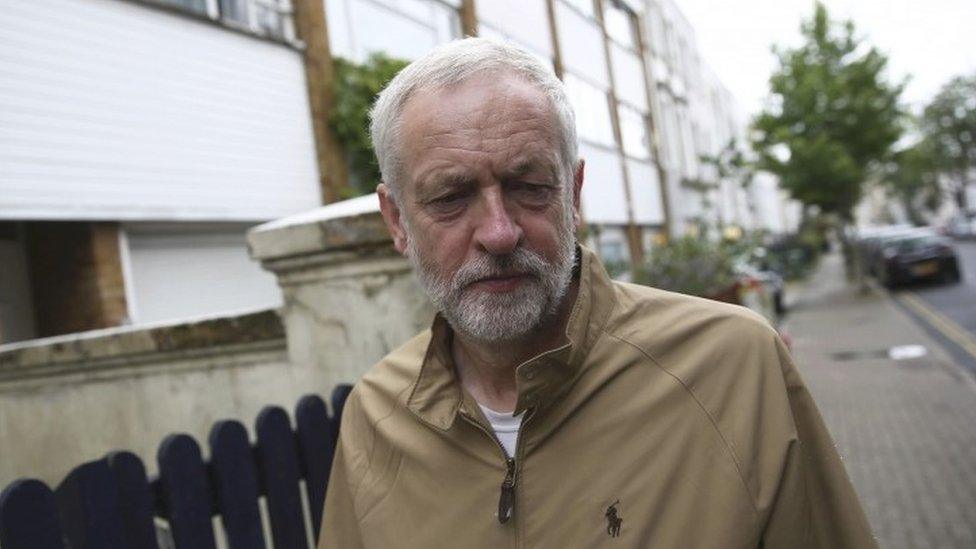Day of change turns rules upside down
- Published

Crowds gathered in Westminster through the day
Tourists and members of the public drifted to Westminster's College Green - to witness this day, and also, perhaps, just to make sense of what's going on.
In less than 24 hours, the country's chosen to leave the European Union, abandoning an institution, a concept that's been part of the fabric our institutions since the 1970s.
As a result, the prime minister has left his job. Some Labour MP s are trying to unseat their leader. And Scotland faces another referendum on the other union.
Tonight it's not clear who'll be running the country in three months time. It's not certain if the leader of the opposition will stay in post beyond the weekend.
But remember, this was not an overwhelming surge to one side. Decisive yes, but a move in the margins.
Yet in a referendum - a binary vote - that produces a result that could change everything for generations.
It is not so much that politics has been turned upside down - but the conventional rules, the expectations - have been scrapped by one decision.
The prime minister's judgement, his mistaken analysis of how to win the public over, cost his job.
And almost the entire establishment's appeal to the electorate was rejected. One member of the cabinet pointed to the problem: "they don't believe us".
Right now, it is not at all inevitable that's a problem the current generation of politicians will ever be able to fix.
- Published19 June 2016
